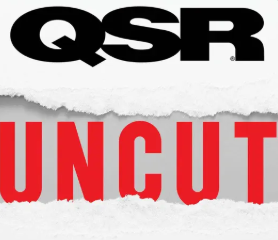Authored by Patricia Manos, SVP, Marketing & Consumer Experience
 Launching new products without thorough consumer testing can lead to significant financial losses and damage to a company’s reputation. Investing in comprehensive product testing is essential to mitigate these risks and transform product development from product testing failures into a strategic opportunity.
Launching new products without thorough consumer testing can lead to significant financial losses and damage to a company’s reputation. Investing in comprehensive product testing is essential to mitigate these risks and transform product development from product testing failures into a strategic opportunity.
The High Stakes of Product Launches
A substantial number of new products fail to meet market expectations. About 70-80% of new product launches miss revenue or market share targets.
"All the great marketing and perfect execution in the world is never, at the end of the day, going to be more important than whether the product was any good. So if you have confidence in the product, it gives you confidence to go ahead with the other investments too.”
Laura McCorvie, Founder & President of McCorvie & Partners LLC, Former Curion Board Member"
This high failure rate underscores the critical importance of understanding consumer preferences and market demands before a full-scale launch.
Notable Product Failures Across Industries
Product failures are strategic cautionary tales that tell critical insights into consumer psychology, brand positioning, and market dynamics. Each failed launch is a master class in what NOT to do, with valuable lessons that can save companies millions.
Consumer Packaged Goods (CPG)
PepsiCo’s Crystal Pepsi (1992): Introduced as a clear cola, Crystal Pepsi failed to resonate with consumers due to its unconventional appearance and lack of distinct flavor differentiation, leading to its discontinuation within a year.
Colgate Kitchen Entrees (1982): Colgate’s attempt to expand into frozen meals was a disaster. Consumers associated the brand with toothpaste, making it nearly impossible for them to see it as a food brand.
Beauty Industry
Estée Lauder’s Estée Edit Line (2016): Aimed at attracting younger consumers, this sub-brand struggled with unclear brand positioning and failed to connect with its target audience, leading to its discontinuation within a year.
Revlon’s Flesh Beauty (2018): Launched with the promise of inclusive shade ranges, the brand suffered from inconsistent product quality and marketing that failed to connect with its intended audience. It was pulled from shelves in 2021.
Fast-Casual Restaurants
Chipotle’s Queso Introduction (2017): Chipotle introduced queso to its menu, but the initial formulation was widely criticized for its gritty texture and taste. The company had to reformulate the recipe after significant consumer backlash.
McDonald’s Arch Deluxe (1996): Marketed as a sophisticated burger for adults, the Arch Deluxe failed because McDonald’s core audience wasn’t looking for premium-priced items. The launch cost the company an estimated $300 million.
Durable Goods
Samsung Galaxy Note 7 (2016): Battery defects caused some devices to overheat and catch fire, leading to a global recall and an estimated $17 billion in losses. The incident also damaged Samsung’s reputation for safety and reliability.
Amazon Fire Phone (2014): Amazon’s entry into the smartphone market was met with poor sales due to a lack of differentiating features and a high price. The product resulted in a $170 million write-down before being discontinued within a year.
HP TouchPad (2011): Attempting to compete with the iPad, HP’s tablet suffered from poor software support and lackluster consumer interest, leading to its discontinuation just 48 days after launch.
Impact of Product Failures
When innovation goes wrong, the consequences go far beyond a single product. These failures reveal three critical business vulnerabilities that can cripple even the most established brands.
Companies can face substantial financial setbacks due to recalls, unsold inventory, and write-downs. Also, product failures can erode consumer trust and tarnish a brand’s reputation, leading to long-term revenue declines. And in severe cases, companies may be forced to withdraw the product entirely, losing their investment and market position.
Overcoming Barriers to Product Testing
The path to breakthrough product development is littered with landmines that can derail even the most promising innovations. Recognizing and protecting against these barriers is the difference between strategic success and costly failure:
- Resource Constraints: Limited budgets and time pressures can hinder thorough testing.
- Solution: Implement advanced analytical methods that leverage existing data to provide deeper insights without excessive expenditure.
- Organizational Challenges: In large companies, siloed departments may impede the flow of information necessary for comprehensive testing.
- Solution: Foster cross-functional collaboration to ensure all relevant stakeholders are involved in the testing process, facilitating a holistic evaluation of the product.
- Market Pressures: The urgency to launch products quickly can lead to shortcuts in testing phases.
- Solution: Prioritize a culture that values thorough testing, even if it means extending development timelines, to ensure product quality and consumer satisfaction.
The Imperative of Rigorous Testing
Regular and rigorous product testing enables companies to identify potential issues early, understand consumer preferences, and make necessary adjustments before a full-scale launch.
Modern product testing and development is increasingly about leveraging extensive historical data to make more informed decisions. By analyzing vast datasets spanning multiple product categories, companies can now transcend traditional testing limitations.
This approach allows businesses to:
- Evaluate new product concepts against robust historical performance benchmarks
- Identify “sleeping beauty” products with unexplored potential
- Make more confident investment decisions
- Understand whether a product meets critical action standards before major investments
Stop treating product launches like a roll of the dice. Your next breakthrough should be packed with ruthless, data-driven precision. Invest in understanding your market, test relentlessly, and transform your innovation from a high-risk gamble into a strategic science.
Curion specializes in delivering impactful insights to the world’s top CPG companies, helping them develop winning, repeatedly purchased products. Curion’s deep data-driven product insights, sensory expertise, and state-of-the-art consumer centers enable them to uncover responses to critical client objectives. With over five decades of experience in the product testing industry, Curion is dedicated to guiding clients with their proprietary XP Xperience Performance platform, connecting brands to consumers at every step.
An innovator in the industry, Curion recently developed a groundbreaking benchmarking product testing method, the Curion Score™, which has become a trusted and sought after tool within the industry. As one of the largest product and consumer insights companies in the U.S., Curion has built a reputation for excellence and trust among the world’s leading consumer brands. Curion’s commitment to innovation and expertise, coupled with a passion for delivering actionable insights, makes Curion a valuable partner for companies looking to develop and launch successful products.
